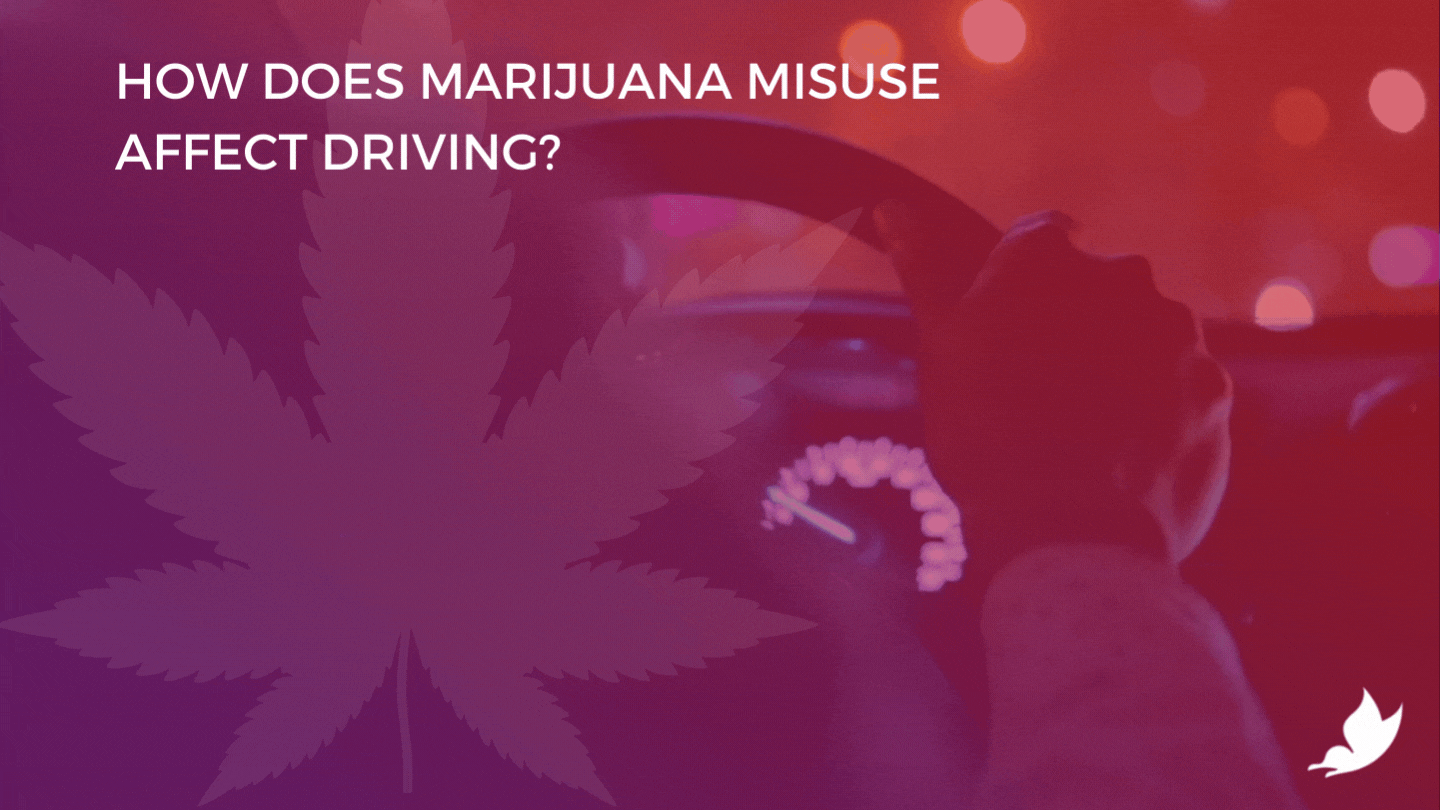Used by nearly 40 million people, marijuana ranks as the most commonly used illicit drug in the United States. Currently, 36 states allow the medicinal use of marijuana, and 18 states plus Washington D.C. permit the recreational use of the drug. It is likely only a matter of time before marijuana is decriminalized throughout the country.
Whether or not this comes to pass, there needs to be an increase in education about the health risks of using the drug. One direct result of increasing marijuana use is impaired driving. As states continue to legalize marijuana, more people are driving under the influence of the high-potency drug, and research is showing the increased risks of marijuana-related impaired driving.
How Does Marijuana Misuse Affect Driving?
Many of the side effects of using marijuana are similar to those experienced with excessive alcohol use because of how marijuana affects the brain. There is ample research showing that driving high is incredibly similar to driving drunk.
In some cases, driving while high is even more dangerous. Why? One reason is the much higher concentration of THC found in marijuana today. Depending on the marijuana product, the levels of THC may vary, and therefore can cause more severe symptoms and impaired driving.
When marijuana is smoked, the THC in the smoke easily passes from the lungs into the blood, where it is then carried throughout the body and to the brain. The THC content in marijuana cigarettes is roughly 15%. As the THC takes effect on the brain, it produces the “high” sensation. Some of the effects of marijuana on the brain can include:
- Altered sense of time
- Altered senses
- Delusions
- Impaired body movement
- Memory problems
- Mood changes
- Trouble thinking
In comparison, marijuana concentrates have very high levels of THC. Concentrates might take the form of hash oil or wax, a hard amber-colored solid, medicated balms, or edibles. Solvent-based products have been documented with THC levels averaging 54-69% and even exceeding 80%, and non-solvent based products have been found with THC levels of 39-60%.
(Also, one study found that 80% of the concentrate samples it tested were contaminated either with pesticides or residual solvents that were not fully purged in the manufacturing process.)
According to the National Institute on Drug Abuse: “not only do concentrates have high levels of THC, but dabbers inhale the entire amount all at once — in a single breath. As a result, concentrates can deliver extremely large amounts of THC to the body quickly. The risks of physical dependence and addiction increase with exposure to high concentrations of THC, and higher doses of THC are more likely to produce anxiety, agitation, paranoia, and psychosis.”

Measuring Body Absorption Rates of Marijuana Proves Difficult
In order to determine whether drivers are impaired due to cannabis, scientists are working to create a Breathalyzer for THC, but it is proving to be difficult. Because the absorption rates of marijuana vary widely from person to person, making a blanket law to cover all marijuana use is almost impossible.
Colorado was one of the first states to legalize the drug, and law enforcement officers can administer a blood test (these must be timely) to determine whether a driver is under the influence of marijuana or not. Unfortunately, because of the wide variances in how the drug affects people, this THC test is not reliable.
Case Study: Marijuana DUIs in Nevada
The state of Nevada allows for both medical and recreational use of marijuana, and there have been many incidents stemming from people driving while under the influence. Currently, Nevada has a “per se” law, allowing for criminal prosecution if a person is driving with as little as 2 nanograms THC/milliliter of blood. For this reason, legislative committees are considering other options for testing drug impairment while driving.
Researchers have pointed to the fact that modified field sobriety tests are far more reliable than THC blood tests (which require timely blood samples), and Nevada officers are using such tests. The Office of Traffic Safety received a special grant to fund specialized training for law enforcement officers, giving them the ability to better detect drugged drivers.
Marijuana still doesn’t mix with driving
Increased availability of marijuana in states where medical marijuana is legal has shown a statistical reduction of around 5% in beer sales and a decrease of around 13% in fatal drunk driving accidents. Marijuana still doesn’t mix with driving and is absolutely still a problem despite the trade-offs. Some of the statistical results could be because alcohol is consumed in public venues, requiring transportation to get to and from, and marijuana is consumed in private venues most often.
Landmark Recovery of Las Vegas Treats Marijuana Dependence
Marijuana misuse and dependence is a medical condition that can be treated here in Las Vegas with proper intervention and treatment. If you or someone you love are using marijuana or might be struggling with marijuana use disorder (MUD), please contact us at Landmark Recovery of Las Vegas. We offer specialized programs and our staff is dedicating to helping you beat your addictions and begin the road to recovery.
Call 888-448-0302 today to speak with one of our recovery specialists 24/7.

Choose Recovery Over Addiction
We're here 24/7 to help you get the care you need to live life on your terms, without drugs or alcohol. Talk to our recovery specialists today and learn about our integrated treatment programs.




